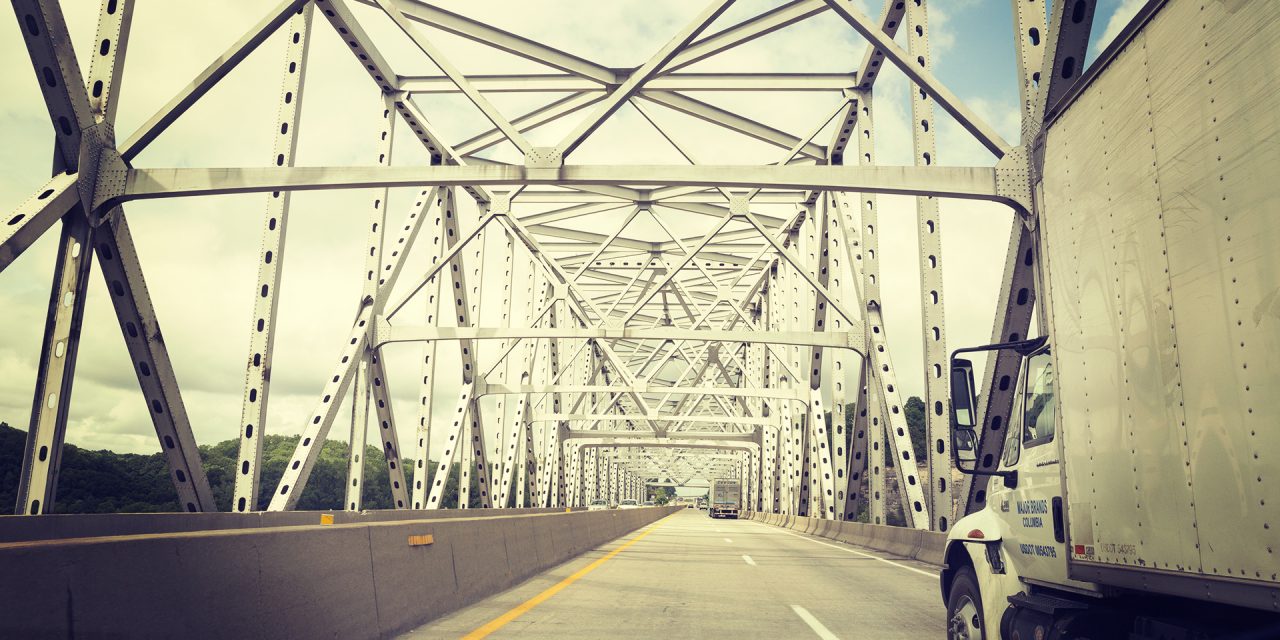Summary
Missouri’s transportation system needs more funding. Our rural farm-to-market roads and bridges need it the most. We also need a workable plan to achieve a permanent funding increase.
Background
All Missouri roads are vital to someone, whether it is a farm-to-market road carrying commodities or a rural route carrying a school bus full of our children. MOFB members see that our transportation system’s needs are not being met. We believe that the current funding breakdown between urban and rural Missouri is fair and allows the state to address priorities in each area.
We also advocate for maintaining and increasing river transportation. Missouri’s location in the center of the nation, at the meeting points of the nation’s largest interstates and rivers, is a built-in geographical advantage. We need modern, reliable infrastructure so we can use Missouri’s location to our benefit.
Missouri’s roads and bridges are primarily funded through the state’s fuel tax. It has been 25 years since Missouri increased funding to support our highway system. Meanwhile, the purchasing power of fuel tax dollars has continued to shrink. MOFB members know increased funding is badly needed.
MOFB also advocates for federal investment in Missouri’s infrastructure. Any infrastructure initiatives need to take into account the unique needs and resources of rural communities. We need to ensure the projects are not all awarded in high-population areas.
Status
In November 2018, Missouri voters rejected Proposition D, which would have increased the motor fuel tax. The same funding shortfalls remain, and MOFB is continually working with leaders in state government to find a permanent solution.
In 2019, the Missouri legislature approved a plan to repair 215 bridges with a $301 million bonding proposal. This plan was triggered when Missouri was awarded a federal INFRA grant to help replace the Missouri River bridge on I-70 near Rocheport. These are huge steps toward modernizing our roadway infrastructure.
However, we will never bring our roads and bridges to where they must be without increasing permanent road funding. MOFB is working with the Governor and leaders in the legislature to find a workable path forward to fund our infrastructure for future generations. MOFB also continues to work with Missouri’s Congressional delegation to advocate for federal infrastructure programs that work for rural areas.
MOFB Policy
MOFB members acknowledge the need for increased highway and bridge funding and could support additional funding through fuel tax, sales tax, and/or vehicle fees, if MoDOT could ensure the fair distribution of funding between rural and urban areas.
With so many different plans, routes (such as I-70), cost figures and estimated tolls being talked about for Missouri, we are skeptical about the idea of implementing tolling in Missouri and would need to have specifics of any tolling proposal to determine if our members would support.
Adequate roads and bridges from county systems to interstate highways are essential for the production and distribution of all commodities, including crops and livestock. We support bridges constructed on county roads be built at a minimum of 20 feet wide, to allow for and support the movement of large agriculture implements and machinery. We also believe the Missouri Department of Transportation should work to improve the state’s roads and bridges to meet the needs of our military and civil defense operations in the state.
The Governor’s appointments to the Highway and Transportation Commission must be fair and balanced representing both rural and urban interests. A fair allocation of highway funds should be implemented using such objective criteria as vehicle miles traveled, recognizing not only the importance of the interstates but also the importance of the state/federal highway system and the farm-to-market roads. Any plan for system expansion, rehabilitation, reconstruction or maintenance should identify specific projects and commit to general timelines for completion.
All earmarked federal highway and transportation related funds received in Missouri should be taken into consideration in the allocation of the state funds and other remaining federal funds.
Taxes and fees generated by highway use should be spent on the highway system and not diverted to other modes of transportation and non-highway use.
We strongly support port authorities and river commerce and believe funding for river transportation and port improvements should be a component of state and federal transportation legislation.
We believe the Missouri Department of Transportation should work with Farm Bureau members and agricultural producers to develop a program that addresses the public safety concerns associated with moving agricultural machinery on roadways.


